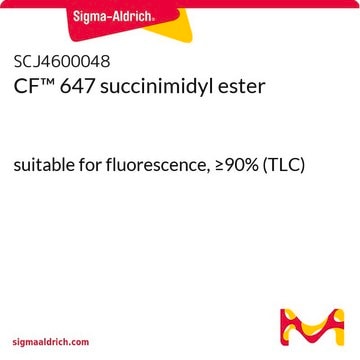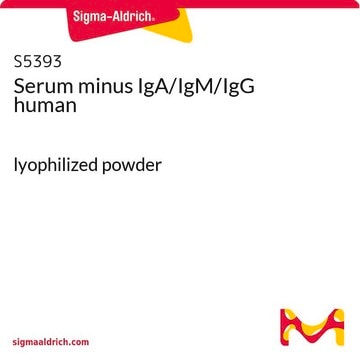推薦產品
一般說明
Membrane Preparations for Vesicular Transport Assays (VT) are suitable for general drug-efflux transporter interaction studies. Both substrate and inhibitor interactions can be assessed using vesicles. The success of substrate interaction studies strongly depends on the passive permeability of the compound. High permeability substrates might not be detected. Control Membranes with no-, or significantly lower transporter activity are also available.
應用
In the vesicular transport assay so-called "inside-out" membrane vesicles containing ABC transporters are applied. Incubating substrates of the respective efflux transporter in the presence of the inverted membrane vesicles and ATP will allow measuring accumulation of the substrates into the vesicles. In many cases radiolabeled reporter substrates are used but recently SOLVO developed the new PREDIVEZ Vesicular Transport Kits that use fluorescent reporter substrates.
The standard vesicular transport assay is an inhibitory assay performed with cold test articles. This assay provides information on any interaction between the ABC transporter and the test article. The transport of the reporter substrate is measured in the presence of the test article (typically in 7 concentrations) and IC50 is defined as the concentration inhibiting the transport of the reporter substrate by 50%.
Should radiolabeled form of the investigated compound or adequate analytical methods (LC/MS, HPLC) be available, the vesicular transport assay may be performed in a direct format without the reporter substrate and may identify substrate nature of the test article. The vesicular transport substrate assay is a low throughput assay. It is suitable for low permeability test compounds as high permeability compounds may escape from the vesicles through the lipid bilayer.
PREDIVEZ vesicular transport kit is sold separately. This transporter membrane vesicle assay requires the PREDIVEZ vesicular transport kit and corresponding control membrane below:
SB PREDIVEZ Reagent Kit for MRP2, MRP3, and MRP5 part number SBPVR3-9RXN and corresponding control membrane SB-HEK293-Mock-CTRL part number SBCT06-1EA
The standard vesicular transport assay is an inhibitory assay performed with cold test articles. This assay provides information on any interaction between the ABC transporter and the test article. The transport of the reporter substrate is measured in the presence of the test article (typically in 7 concentrations) and IC50 is defined as the concentration inhibiting the transport of the reporter substrate by 50%.
Should radiolabeled form of the investigated compound or adequate analytical methods (LC/MS, HPLC) be available, the vesicular transport assay may be performed in a direct format without the reporter substrate and may identify substrate nature of the test article. The vesicular transport substrate assay is a low throughput assay. It is suitable for low permeability test compounds as high permeability compounds may escape from the vesicles through the lipid bilayer.
PREDIVEZ vesicular transport kit is sold separately. This transporter membrane vesicle assay requires the PREDIVEZ vesicular transport kit and corresponding control membrane below:
SB PREDIVEZ Reagent Kit for MRP2, MRP3, and MRP5 part number SBPVR3-9RXN and corresponding control membrane SB-HEK293-Mock-CTRL part number SBCT06-1EA
包裝
500 μL
外觀
Supplied as frozen membrane vesicles, containing 5 mg/ml membrane protein, labeled with volume, catalog number (transporter) and date of production.
法律資訊
Distributed for SOLVO Biotechnology, Inc.
儲存類別代碼
10 - Combustible liquids
水污染物質分類(WGK)
WGK 2
閃點(°F)
Not applicable
閃點(°C)
Not applicable
分析證明 (COA)
輸入產品批次/批號來搜索 分析證明 (COA)。在產品’s標籤上找到批次和批號,寫有 ‘Lot’或‘Batch’.。
D F Ortiz et al.
The American journal of physiology, 276(6 Pt 1), G1493-G1500 (1999-06-11)
Bile secretion in liver is driven in large part by ATP-binding cassette (ABC)-type proteins that reside in the canalicular membrane and effect ATP-dependent transport of bile acids, phospholipids, and non-bile acid organic anions. Canalicular ABC-type proteins can be classified into
Laura Partanen et al.
Genes, chromosomes & cancer, 51(9), 832-840 (2012-05-16)
The ATP-binding cassette (ABC) of active transporters comprises a group of proteins that which facilitate efflux of anticancer drugs from cancer cells. We focused on the gene amplification and protein expression of ABCC3 (also known as MRP3) in breast cancer
M Kool et al.
Proceedings of the National Academy of Sciences of the United States of America, 96(12), 6914-6919 (1999-06-09)
The human multidrug-resistance protein (MRP) gene family contains at least six members: MRP1, encoding the multidrug-resistance protein; MRP2 or cMOAT, encoding the canalicular multispecific organic anion transporter; and four homologs, called MRP3, MRP4, MRP5, and MRP6. In this report, we
Koen van de Wetering et al.
Gastroenterology, 137(5), 1725-1735 (2009-07-07)
The physiologic function of the efflux transporter Multidrug Resistance Protein 3 (MRP3) remains poorly defined. In vitro, MRP3 transports several glucuronidated compounds, but the compounds transported under physiologic conditions are unknown. Knowledge of the compounds transported by MRP3 in vivo
T Hirohashi et al.
The Journal of pharmacology and experimental therapeutics, 292(1), 265-270 (1999-12-22)
Several organic anions are actively extruded from intestinal epithelial cells into the lumen and vascular sides. To examine the role of the multidrug resistance-associated protein (MRP) family in the intestinal efflux of organic anions, the function and expression of these
我們的科學家團隊在所有研究領域都有豐富的經驗,包括生命科學、材料科學、化學合成、色譜、分析等.
聯絡技術服務








